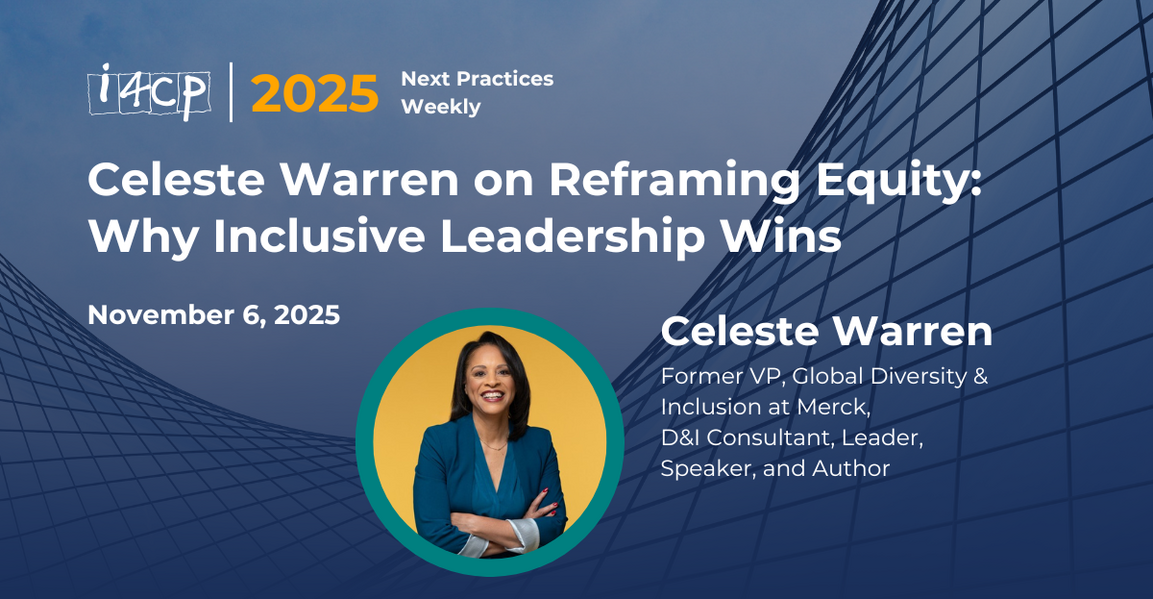Inside Dell’s Simulation-Based Experiences - Talent & Learning Next Practices 9/8
September 8, 2022
September 8, 2022
The Talent & Learning Next Practices Monthly series provides a forum for the Talent and L&D leadership community to come together to discover and advance next practices. Each month, you’ll hear from executives in Talent and/or Learning from some of the largest and most respected organizations in the world, learn about the latest i4cp research, and share and receive ideas from your peers.
This month's featured guest was Ramona Arora, Vice President of Global Talent Development at Dell. She joined i4cp's CEO and Co-Founder Kevin Oakes and Sr. Research Analyst Tom Stone in a discussion of the latest Learning and Development successes and initiatives at Dell. Here are some highlights:
- About five years ago, Dell started to transform their approach to learning. They learned from marketing by thinking a lot about the personas of their learners. That led to persona-based practice areas: professional development, leadership development, top-talent development, and executive development.
- The other teams that make up Dell Learning are enablement teams: Learning Technology, Go-To-Market, L&D Operations, Global Delivery/Facilitation, and Learning Assessments and Analytics.
- Arora said that they found that by having a transaction involved, even if the cost was seemlessly reimbursed, usage of learning opportunities increased. There is something about involving a financial transaction that drives commitment and usage.
- Dell has standard tools and content providers in their ecosystem (Saba, EdCast, LinkedIn Learning, etc.) but they are also always testing many other platforms and providers.
- At this point, in-person ILT is not a significant portion of overall training at Dell. It is used in some areas, but Dell was already an over 50% remote work organization even before the pandemic. So they have been comfortable with virtual classroom training for many years, and have increased their use of it over the past few years.
- Three key principles Arora uses for learning programs at Dell: they need to be Netflix-bingeable, include edutainment, and have measurable results. Netflix bingeable means content provided in smaller chunks, but that leaves the learner wanting more. Edutainment means the learning triggers an emotional response, which then triggers a memory, and helps cement the learning.
- Dell leverages a chatbot to support learning accountability, to check-in with learners on things they said they would take action on, etc.
- Something that has been new relatively recently is Dell needing data scientists on the learning team to help analyze learning data from their learning record store (LRS) and elsewhere.
- Beyond the chatbot, Dell also uses AI in their communications courses, to provide a scalable communication coaching solution.
- We asked a poll of call participants: "Is your organization using AI in your L&D offerings?"
- 15% Yes
- 63% No
- 21% No, but we are exploring it
- Dell uses simulations extensively in their learning. These incorporate video content, and even leverage content recorded in Zoom and then repurposed in the asynchronous simulations. These are built-in house, not using a vendor-provided solution.
- What characteristics does Arora look for in individuals interesting in joining her learning team at Dell? One is change agility, being able to quickly adapt. Another is being curious and having an aptitude to understand the business.
- We asked a poll of call participants: "Has your organization’s culture changed since the onset of the pandemic?"
- 15% Yes, it has become much better
- 41% Yes, it has improved somewhat
- 13% No
- 30% Yes, but it has deteriorated somewhat
- 0% Yes, but it has become much worse
Links to resources shared on the call:
- Upcoming i4cp events
- 2023 i4cp Next Practices Now Conference -- May 27-30, 2023, in Scottsdale, Arizona (and virtual). Now open for registration!




